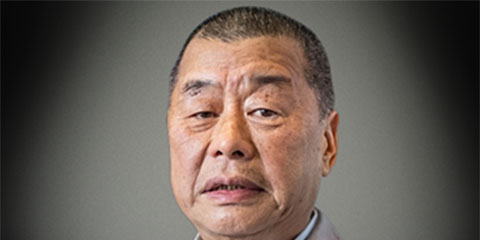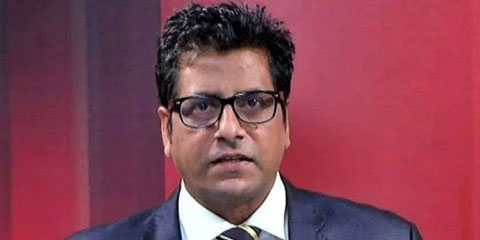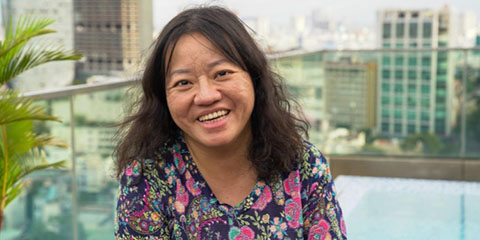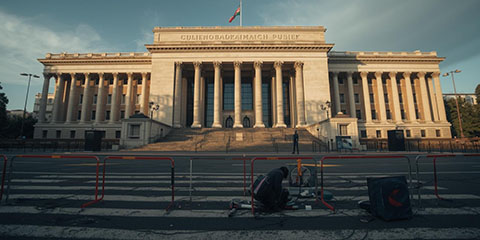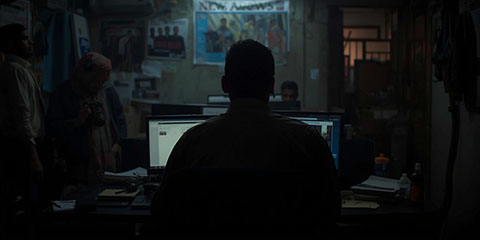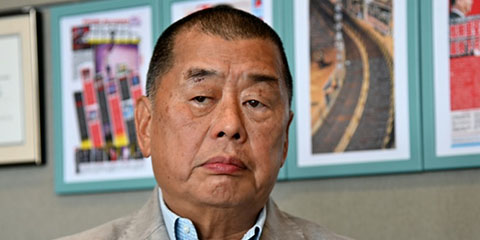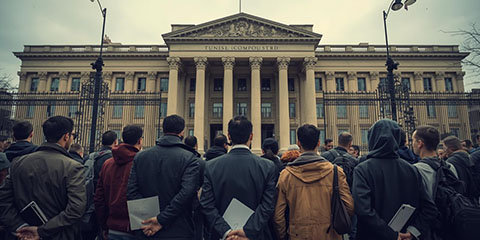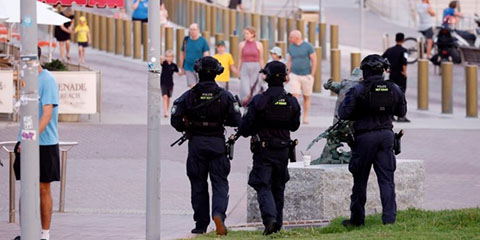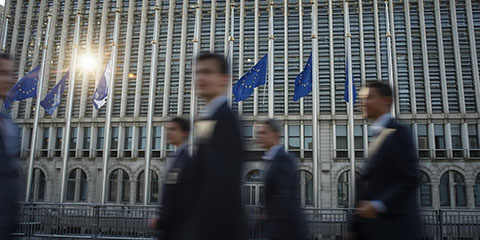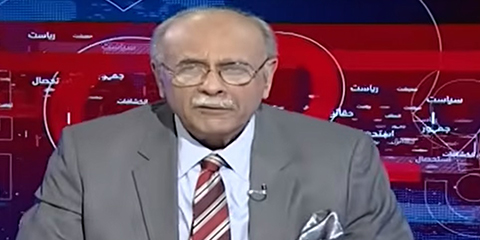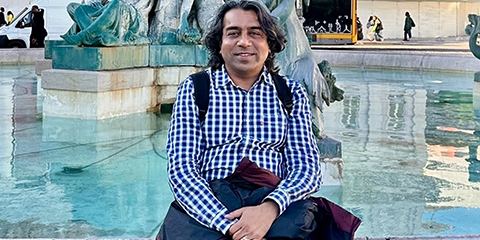Severed pig head sent to Indonesian news outlet as president attacks foreign-funded media
JournalismPakistan.com | Published 8 months ago | CPJ News Alert
Join our WhatsApp channel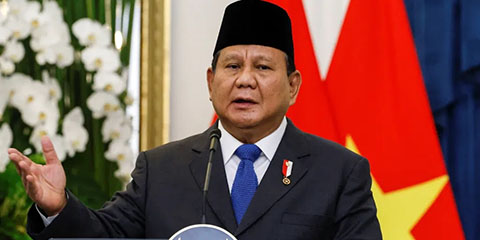
NEW YORK—The Committee to Protect Journalists condemns the harassment of Indonesia’s leading independent news outlet, Tempo, after a severed pig’s head was delivered to its office in the capital Jakarta on March 19—weeks after President Prabowo Subianto alleged that foreign-funded media organizations are trying to “divide” the country.
On the same day, protesters gathered outside Indonesia’s Press Council building and demanded it to take action against Tempo, accusing the outlet of acting in the interest of “foreign agent,” billionaire financier George Soros.
“This is a dangerous and deliberate act of intimidation,” said CPJ’s Asia Program Coordinator Beh Lih Yi. “Tempo is well-known internationally for its fiercely independent reporting; using this playbook from autocrats elsewhere simply will not work. President Prabowo Subianto must uphold press freedom and condemn this highly provocative act if he wants Indonesia to be taken seriously as the world’s third-largest democracy.”
Pig’s head, sent in a cardboard box, was addressed to a female journalist at Tempo who covers politics and hosts a popular podcast program, said Wahyu Dhyatmika, chief executive of Tempo’s digital team. He called the incident an attempt to “scare and silence” the Indonesian press into self-censorship, and said Tempo lodged a police report on Friday.
Tempo has reported critically on the Prabowo government’s policies, including a newly launched multibillion-dollar free school meal program. Founded originally as a weekly magazine in 1971 by CPJ’s International Press Freedom Award winner and writer Goenawan Mohamad, the outlet had been banned twice, first for two months in 1982 and later in 1994. It was relaunched in 1998 after the fall of dictator Suharto, who Prabowo once served under and who was accused of using military figures to crack down on dissent.
Indonesia’s presidential office expressed “regret” over the incident and said that a robust media is needed in the country.
“We do not know exactly who did it and why the incident happened … Indonesia remains committed to maintaining and protecting freedom of the press and freedom of expression,” spokesperson Philips Vermonte told CPJ via messaging app.
The national police did not immediately respond to a request for comment.
Photo caption: Indonesian President Prabowo Subianto alleged that foreign-funded media organizations are trying to “divide” the country. (Photo: Reuters/Ajeng Dinar Ulfiana)
انڈونیشین نیوز آؤٹ لیٹ ٹیمپو کو خنزیر کا سربریدہ سر بھیجا گیا، صدر کی غیرملکی فنڈڈ میڈیا پر تنقید جاری
نیویارک— کمیٹی ٹو پروٹیکٹ جرنلسٹس نے انڈونیشیا کے معروف آزاد نیوز آؤٹ لیٹ ٹیمپو کو دھمکانے کی سخت مذمت کی ہے، جب 19 مارچ کو جکارتہ میں اس کے دفتر کو خنزیر کا کٹا ہوا سر بھیجا گیا۔ یہ واقعہ صدر پروباؤو سبیانتو کے اس دعوے کے چند ہفتوں بعد پیش آیا کہ غیرملکی فنڈڈ میڈیا انڈونیشیا کو "تقسیم" کرنے کی کوشش کر رہا ہے۔
اسی دن مظاہرین نے انڈونیشیا کی پریس کونسل کے باہر احتجاج کرتے ہوئے ٹیمپو کے خلاف کارروائی کا مطالبہ کیا اور اسے ارب پتی مالیاتی ماہر جارج سوروس جیسے "غیرملکی ایجنٹ" کے مفادات میں کام کرنے کا الزام دیا۔
کمیٹی ٹو پروٹیکٹ جرنلسٹس کے ایشیا پروگرام کے کوآرڈینیٹر بہ لیہ یی نے کہا، "یہ ایک خطرناک اور سوچی سمجھی دھمکی ہے۔ ٹیمپو اپنی غیرجانبدار اور جرات مندانہ رپورٹنگ کے لیے بین الاقوامی سطح پر جانا جاتا ہے۔ آمرانہ حربے اسے خاموش نہیں کرا سکتے۔ اگر صدر پروباؤو سبیانتو انڈونیشیا کو دنیا کی تیسری بڑی جمہوریت کے طور پر سنجیدگی سے پیش کرنا چاہتے ہیں تو انہیں آزادی صحافت کا دفاع کرنا ہوگا اور اس اشتعال انگیز واقعے کی مذمت کرنی ہوگی۔"
یہ خنزیر کا سربریدہ سر ایک کارٹن میں پیک کر کے ایک خاتون صحافی کے نام بھیجا گیا تھا جو ٹیمپو میں سیاست پر رپورٹنگ کرتی ہیں اور ایک مقبول پوڈکاسٹ کی میزبان بھی ہیں۔ ٹیمپو کے ڈیجیٹل چیف ایگزیکٹو واہیو دیاتمیکا کے مطابق، اس واقعے کا مقصد انڈونیشین میڈیا کو خوفزدہ کر کے خودساختہ سنسرشپ پر مجبور کرنا تھا۔ ٹیمپو نے اس دھمکی کے خلاف پولیس میں رپورٹ درج کروا دی ہے۔
ٹیمپو نے صدر پروباؤو حکومت کی پالیسیوں پر تنقیدی رپورٹنگ کی ہے، جن میں حال ہی میں متعارف کرایا گیا اربوں ڈالر کا فری اسکول میل پروگرام بھی شامل ہے۔ یہ ادارہ 1971 میں معروف مصنف اور کے بین الاقوامی پریس فریڈم ایوارڈ یافتہ گوئناوان محمد نے ایک ہفتہ وار میگزین کے طور پر قائم کیا تھا، اور اسے 1982 میں دو ماہ اور 1994 میں دوبارہ بند کر دیا گیا تھا۔ 1998 میں آمر سہارتو کی حکومت کے خاتمے کے بعد اسے دوبارہ شروع کیا گیا۔ سہارتو کے دور میں صدر پروباؤو فوجی عہدے پر فائز تھے اور حکومت کے ناقدین کے خلاف سخت کارروائیوں میں ملوث ہونے کے الزامات کا سامنا کر چکے ہیں۔
انڈونیشیا کے صدارتی دفتر نے اس واقعے پر "افسوس" کا اظہار کرتے ہوئے کہا کہ ملک میں ایک مضبوط میڈیا کی ضرورت ہے۔
صدارتی ترجمان فلپس ورمونٹے نے کمیٹی ٹو پروٹیکٹ جرنلسٹس کو میسجنگ ایپ کے ذریعے بتایا، "ہمیں نہیں معلوم کہ یہ واقعہ کس نے اور کیوں انجام دیا... انڈونیشیا آزادی صحافت اور آزادی اظہار کے تحفظ کے لیے پرعزم ہے۔
قومی پولیس نے اس معاملے پر کوئی فوری تبصرہ نہیں کیا۔
تصویر کا کیپشن: انڈونیشیائی صدر پرابووو سبیانتو نے الزام لگایا کہ غیر ملکی فنڈنگ والے میڈیا ادارے ملک کو "تقسیم" کرنے کی کوشش کر رہے ہیں۔ (تصویر: رائٹرز/ آژینگ دینار الفیانہ)



